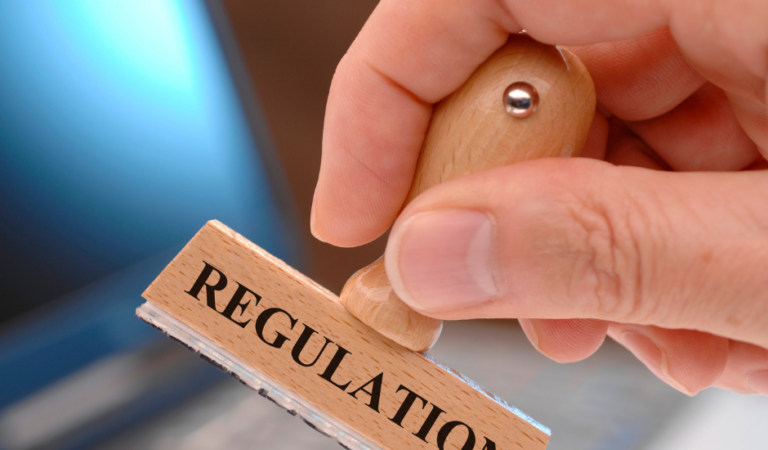 12th November 2021
12th November 2021Laws and Regulations For Building Water Hygiene In The UK
If you are a building owner, landlord, business owner, or you are in charge of a building, you should be compliant with the laws and regulations for building water hygiene.
In this blog, we are going to outline the different laws and regulations you must adhere to as well as the frameworks and guidance to follow. We will also touch on the consequences of not complying, and share our advice on how to ensure your water is safe at all times.
Building Water Hygiene Laws, Regulations And Framework
There are various laws and regulations in place to ensure building water remains safe. There are also several frameworks and guides to follow to help you stay on top of building water hygiene.
ACOP L8 Code
Let’s start with the Approved Code of Practice: Legionnaires’ disease: The control of Legionella bacteria in water systems (L8). This sets out the most important guidelines concerning Legionella control and prevention.
Legionella is a bacteria commonly found in purpose-built water systems if regulations are not followed. This bacteria is dangerous as it can cause several diseases and illnesses, including Legionnaire’s Disease, Pontiac fever and Lochgoilhead fever.
Legionnaire’s disease is particularly harmful. It is a form of pneumonia that can infect anyone and is more problematic for smokers and those with impaired immune systems. Legionnaire’s disease can be fatal if not treated properly.
Legionella bacteria are found in various purpose-built systems, including cooling towers, evaporative condensers and hot and cold water systems.
The Approved Code Of Practice and guidance book outlines the following:
- How to identify and assess sources of risk
- How to prepare a scheme to prevent or control risk
- How to implement, manage and monitor precautions
- How to keep records of precautions
- Appointing a manager to be responsible for others.
Read the ACOP L8 Code here.
Health and Safety at Work etc Act 1974 (HSWA)
Every business owner will be familiar with the Health and Safety at Work Act, which is the primary piece of legislation covering occupational health and safety in Great Britain.
The HSWA states that business owners and building owners owe a ‘common duty of care’ to employees and anyone else that may visit the premises. Duties outlined under the HSWA extend to risks from Legionella bacteria.
In addition, The Management of Health and Safety at Work Regulations (MHSWR) offers a broad framework for business owners and those in charge of buildings in relation to controlling health and safety at work.
Control of Substances Hazardous to Health Regulations 2002 (COSHH)
COSHH is the law that requires employers to control substances that are hazardous to health, including chemicals, fumes, dust, vapours, mists, nanotechnology, gases, biological agents and germs that causes diseases (such as Legionnaire’s Disease).
COSHH outlines extensive requirements for employers and property managers to comply with, including the elimination of airborne pathogens and contaminants that could cause illness, such as Legionella bacteria. Lack of compliance could result in serious criminal prosecution.
BSRIA’s Legionnaires’ Disease Risk Assessment
Taking into account the ACOP L8, the Building Services Research and Information provide a detailed and structured framework outlining how to carry out thorough Legionella risk assessments.
BSRIA’s Legionella guides include the Legionnaires’ Disease Risk Assessment (BG57/2015), which was designed specifically for building owners and managers as well as specialist consultants BSRIA also offers a Legionnaire’s Disease – Operation and Maintenance Log Book (BG58/2015).
The Water Supply (Water Fittings) Regulations 1999
The Water Supply (Water Fittings) Regulations 1999 apply to the design, installation and maintenance of water systems, plumbing systems, water fittings and water-using appliances. The regulations aim to prevent water contamination as well as other issues, such as waste and misuse.
Your water systems and cold water tanks should comply with the regulations set out. They should also feature WRAS-approved materials. Water Regulations Approval Scheme (WRAS) is an independent UK certification body that helps building owners choose materials that keep water safe.
The Risk Of Not Complying
As a building owner, landlord or business owner, you are responsible for the building water hygiene. All regulations must be adhered to using the guidance and framework provided.
If you do not comply with the regulations surrounding building water hygiene, you run the risk of prosecution.
Not adhering to building hygiene rules can also lead to water contamination, which can cause disease, illness and even death. Find out more about the consequences of poor water hygiene here.
Help From A Water Treatment Specialist
Clarion Water is a specialist water hygiene contractor with extensive experience in the water hygiene and Legionella industry.
We carry out professional Legionella risk assessments and provide water treatment services to ensure you are compliant with all water hygiene rules and regulations.
Our core services also include the repair, reline, replacement or installation of cold water tanks.
If you would like to find out more about how Clarion Water can help you comply with building water hygiene regulations, get in touch.